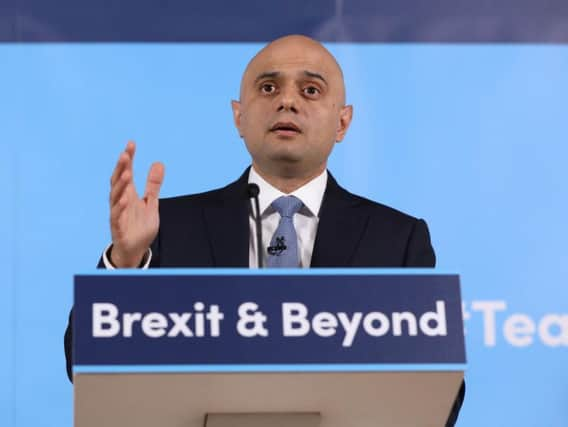Chancellor must widen the scope of review into loan charge, say MPs


The All Party Parliamentary Loan Charge Group (APPG) has written to the Chancellor Sajid Javid calling on him to widen the scope of the review into the loan charge, a controversial policy which opponents claim breaches the rule of law.In the letter, the MPs also call for all loan charge settlement activity and enforcement - including APNs - and penalties to be suspended pending the outcome of the review and the implementation of the recommendations. Sir Amyas Morse, the former Chief Executive of the National Audit Office (NAO), is leading the independent review commissioned by Mr Javid.The APPG letter - which has been signed by Sir Ed Davey, the APPG’s chairman and the vice-chairs Ruth Cadbury and Ross Thomson - says the scope of the review is unnecessarily narrow and focused on the loan charge itself.It adds: “It does not appear to encompass the wider issues, such as, whether the loan charge undermines the rule of law by seeking to impose HMRC’s opinion of the operation of various parts of the tax legislation with no possibility of appeal. Such opinions from HMRC have not been tested yet by the courts. There is a very real question as to what, if any, tax is due from the parties in these, quite complex, arrangements. The scope of the review also leaves out HMRC’s use of APNs that have been issued en masse in an apparent attempt to bully taxpayers into submission.“The review also omits the fact that HMRC opened investigations many years ago and then proceeded to do nothing year after year, thus implying acceptance via their own complacency.”
The APPG is also calling for the review to be "genuinely independent" of the Treasury and HMRC.
Advertisement
Hide AdAdvertisement
Hide AdThe APPG letter says: "The review absolutely must be accompanied by a pause in all related activity by HMRC – in particular, a suspension of the enforcement of payments under settlement contracts or APNs. A failure to do so would lead to the loan charge being, in effect, a post-mortem of the disaster that will unfold in coming weeks."


The letter adds: "The short time frame for the review means that it will be forced to be a rush job. The scope appears to have been limited with this timeframe in mind. HMRC and the Treasury have had several years during which they could have conducted a proper review to understand the implications of the loan charge, both before it was enacted and in the period from the legislation being passed to now. To rush this review through in a mere two months from start to finish is wholly unacceptable."
A Treasury spokesperson said: “We’ve commissioned an independent review to consider the impact of the loan charge.“Sir Amyas Morse is independent and has full control over the review. He will report back by mid-November, so we can give taxpayers certainty about what they need to do in advance of the January Self Assessment filing deadline.”The spokesman stressed that Sir Amyas is known and respected across Parliament for his expertise and independence of mind. “As a former head of the National Audit Office he has extensive experience in scrutinising the government on Parliament’s behalf.“Sir Amyas Morse has full control over how the review is run, and he has made clear that he will accept evidence from stakeholders until September 30.”The Treasury spokesman added: “The secretariat role is to provide administrative support to the reviewer, and it is standard practice for civil servants to provide this function for government commissioned reviews. The reviewer has full discretion over how they run the review and the recommendations, this is not dictated by the secretariat. All civil servants are impartial and bound by the civil service code."
The loan charge was introduced in response to the Treasury’s concerns about "disguised remuneration schemes" which involved individuals being paid through loans, usually via an offshore trust in a low or no tax jurisdiction, which they did not have to repay.
Advertisement
Hide AdAdvertisement
Hide AdAccording to the Treasury, the loan charge means people paying themselves through loans will have to contribute their "fair share" to pay for our public services. Workers from a wide range of professions have been hit with large tax bills, which in some cases date back to 1999.
An HMRC spokesperson said recently: “HMRC is committed to treating all those we serve with respect and consideration
“We have committed to giving people as long as they need to pay the loan charge as we completely understand that facing a large tax bill can be difficult and stressful.
“Our teams are trained to identify customers who are anxious, worried or need extra support and ensure they get the help they need.”